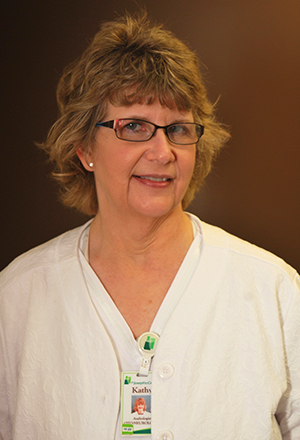Universal Infant Hearing Screening is done hours after birth, detects hearing loss early
Family Health
Here are some signs parents should watch for if their child has hearing difficulties
Within a few hours of your newborn’s birth, your care team will do an evaluation for an early determination of your baby’s health. One such test is Universal Infant Hearing Screening, which is an approach for early detection of hearing loss.
At the Telfair BirthPlace, infants have their hearing screened twice as part of their routine evaluation. The screening is performed shortly after birth and a second time before mom and baby are discharged.
“They are asleep the whole time, and it’s not painful,” says Kathy Dement, clinical audiologist with St. Joseph’s/Candler Center for Oto-Neurology. “We put little sensors on their ear and forehead, and they wear earphones while they sleep, and we run the test.”

The most recent statistics from the Centers for Disease Control and Prevention show that one to two per 1,000 babies are born with hearing loss. In 2020, the CDC reported 6,321 infants were diagnosed with permanent hearing loss out of more than 3 million births. In Georgia, an average of 215 babies are diagnosed with permanent hearing loss each year.
Hearing loss is actually the most frequent health condition in newborns, including 20 times more prevalent than sickle cell disease. That’s why in states like Georgia, Universal Infant Hearing Screening following birth is required.
The Universal Hearing Screening program was instituted in Georgia in 1998 with the goal of screening all babies by 1 month of age and performing diagnostic testing by 3-months-old so that intervention can begin by 6-months-old. If a child can be fitted with amplification by 6 months, even children with mild to severe hearing loss can develop normal or near-normal speech and language skills provided cognition is normal.
“It is something important to catch early because if you can’t hear and no one knows it, you are not going to learn speech and language,” Dement says. “If you don’t learn speech and language, you can’t learn to read, can’t learn to communicate. We don’t want that, and if we can diagnose hearing loss early, ideally within the first three months of life, there are treatment options.”
There are two methods of hearing screens used for newborns and infants: otoacoustic emissions (OAE) and auditory brainstem response (ABR), Dement says.
An OAE measures a very soft sound coming back from the hearing organ, called the cochlea, in response to sounds introduced to the ear.
An ABR measures the response of the hearing nerve to soft sounds that travel through the entire ear. Both tests are performed while the infant is sleeping. All babies requiring a stay in our NICU/Special Care Nursery automatically have an ABR test, Dement says.
If the baby passes the hearing screening, there is a 99 percent confidence that hearing is adequate for speech and language development. If a baby does not pass both screenings while in the hospital, then an outpatient screening is recommended. If they do not pass a third screening, then they get referred for a diagnostic evaluation, which we do at the Center for Oto-Neurology, Dement says.
Watching for the signs of hearing loss
Hearing loss can also occur after birth, as well, due to certain maternal illnesses during pregnancy, if the mother was exposed to certain medications or chemicals during pregnancy, complications during the pregnancy or delivery or due to genetics. An infant with more significant hearing loss will often show signs of hearing loss much earlier than an infant with a hearing loss of lesser degree, Dement says.
An infant with severe hearing loss may not wake or startle to sounds that are loud or very loud and may not calm to a parent’s voice, says Dement. An infant with slight or moderate hearing loss may still react to everyday sounds but would not show signs of hearing loss until 12 to 18 months when a child should begin saying first words.
If you are concerned with your child’s hearing, talk to your pediatrician about a hearing screen. At the Center for Oto-Neurology, our audiologists perform several tests to assess each part of the hearing pathway to determine how soft a child can hear sounds necessary to learn speech and language and recommend the appropriate follow-up.
When an infant is identified with hearing loss, the child is referred to an otolaryngologist for a medical evaluation to determine possible reason, medical treatment options and to obtain medical clearance for hearing aids, if needed.
“It is a hard thing to have to tell a parent their baby has any degree of hearing loss, but when I do testing, I tell them the earlier we find it, the better,” says Dement, who’s been an audiologist at St. Joseph’s/Candler for 35 years, was here when Universal Infant Hearing Screening was first started and screens babies and children for hearing loss.